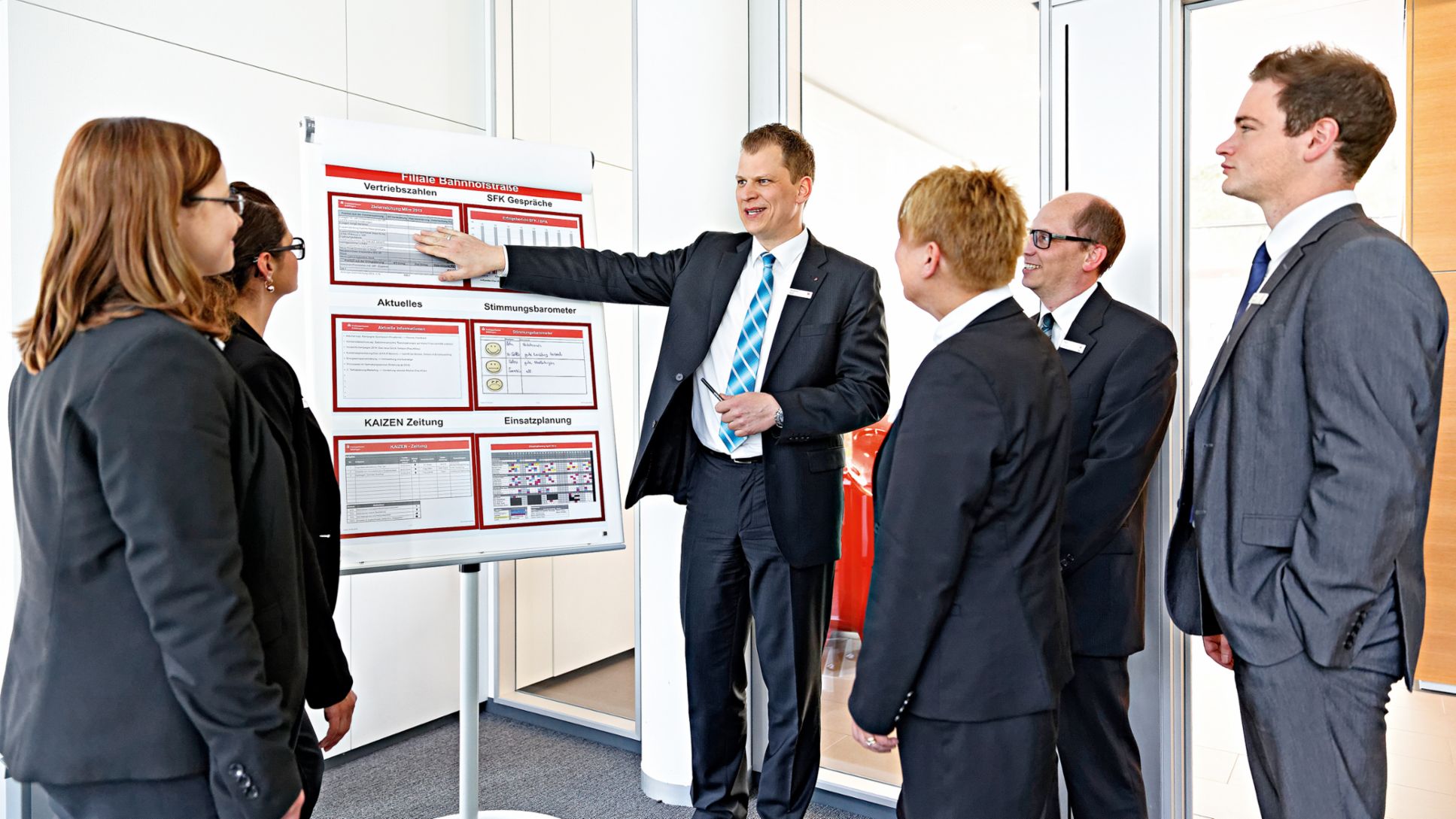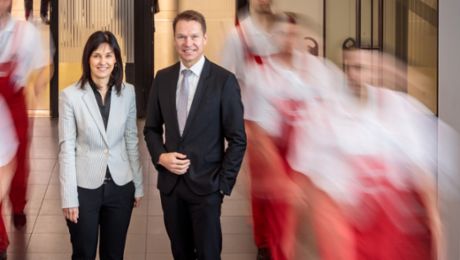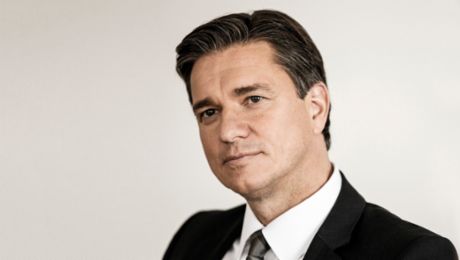It takes time to provide good customer service. To enable its staff to do so, the Kreissparkasse Böblingen, a savings bank in the southern German district of Böblingen, is breaking new ground. This regional financial institute is optimizing the processes in its everyday operations. Its target is to consult with every “customer with potential” at least once a year.
Savings banks are key institutions in society. With a dense network of more than 20,000 offices throughout Germany, the Sparkassen-Finanzgruppe serves around 50 million private customers and around two million companies. As the largest group of banks in the country, with a volume of business of around 2.9 trillion euros, it handles more than 40 percent of the market for investments by private customers and medium-sized enterprises. And for small trade enterprises, that figure exceeds 70 percent.
As financial institutions subject to public law, savings banks provide loans to local companies and offer secure investment opportunities with interest to the local populace. These institutions arose in Germany in the 19th century as a reliable way for lower-income segments of the population to make provisions for old age and illness, and their emphasis on responsibility and sustainability is still in evidence today. The business philosophy of the German savings banks is “Fair. Menschlich. Nah.”—or “Fair. Humane. Nearby.” The third quality—proximity—may well be what makes the difference. With a focus on regional businesses and local private investors, savings banks pursue customer proximity in every respect.
Need for more efficiency
But savings banks do not enjoy as comfortable a position as their market presence might suggest. New competitors are entering the retail banking business and providing accounts, investments, loans, and insurance. Because direct banking services on the Internet do not offer consulting services at physical locations, they can lower their fees. More regulations and lower interest rates are exacerbating cost pressures and forcing savings banks to adopt a more efficient mode of operation—but without giving up their high standards of providing individual consulting services and their position as established members of local communities.
However, the Kreissparkasse Böblingen is proof that these aims need not conflict, and it has reorganized its branch offices in accordance with the principles of lean management. At the same time, this financial institution is concentrating on its core area of expertise and increasing its customer proximity even more. “Our aim is to consult with each customer with potential at least once a year,” says Carsten Claus, who has been the CEO since 1999. The Kreissparkasse Böblingen is one of more than 400 savings banks in Germany. Its 57 offices offer Böblingen’s 370,000 residents numerous opportunities for direct contact. “We asked ourselves where we generate investments, and where we have customer contact,” says Claus. “And the answer is: at our branch offices. So the challenge lay in tackling this issue.”
Individual talks are worth every penny. They create trust and lay a foundation that enables the staff of the bank to get to know their customers and provide the best possible financial consulting. But individual service is expensive. “Customers are willing to pay for good consulting, but not for complicated processes,” explains Deputy Board Member Michael Fritz. To eliminate waste and to make itself more efficient for the future, the Kreissparkasse Böblingen joined forces with Porsche Consulting. The consultants were charged with helping to optimize, standardize, and streamline processes at the branch offices. “The aim was to have more time for customers and to approach sales in a more systematic manner,” says Fritz.
The project was launched at four pilot offices in October 2012 and was extended to the other offices six months later. “The first major step was to get the office directors on board, because our highly motivated employees act as our ambassadors,” says CEO Claus. The focus was on “shop floor management” at the Kreissparkasse. “All of the office directors received basic training in lean management. They saw the principles at work at a Porsche plant themselves and learned how to spot waste in processes,” reports Dr. Matthias Tewes, Partner at Porsche Consulting.
The bank employees themselves are now passing on their knowledge
In order to introduce a continuous improvement process (CIP), the office directors themselves helped to develop the standards. For these standards had to be just as applicable to a small-town office with two employees as to the head branch offices. “The consultants tailored their approach to us and our individual characteristics, which met with a positive response,” says Fritz. For instance, they set up a standard definition of how to talk with customers and how to handle financial consulting. To make the exchange of information between the office directors and their staff members more efficient, they instituted team boards. “Team boards ensure that problems are quickly identified and taken care of, and that employees are informed of everything essential without being flooded with information,” says Tewes. Covering areas such as current indices, staff schedules, and office trend indicators, these boards present all information concisely and with uniform standards.
The improvements have been well received by the employees and have prompted a sustainable change in awareness. As Claus notes, “One office director recently told me that her workload initially increased. Nonetheless she’s completely committed, because the extra work now will pay off many times over in the future.” One of the principals even cancelled a round of jogging with the CEO at short notice—because he had to prepare something for an upcoming CIP workshop. The bank employees themselves are now leading workshops and passing on their knowledge. “The lean philosophy is firmly anchored in the daily operations and culture of the Kreissparkasse,” says Tewes. Are these lean processes evident to the customers as well? “The key to success is the number of talks,” says Fritz with an eye to the sales figures. Today around 50 percent of the consultants hold more than four talks with customers a day. “That’s a significant increase,” says Claus with satisfaction. This lays a solid foundation—and the Kreissparkasse will continue to stand for individual consulting and personal service.
Info
Text first published in „Porsche Consulting - THE MAGAZINE", Issue 15
Author: Hendrik Krusch




